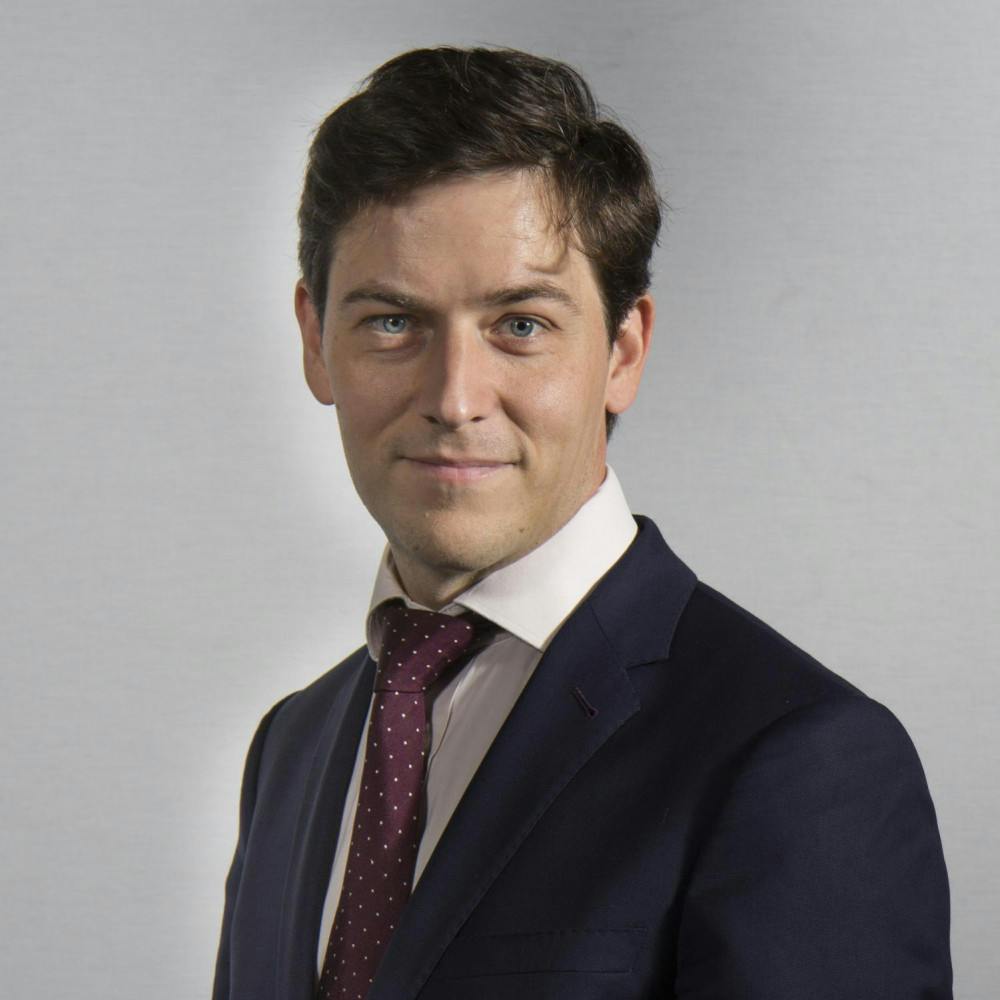The American Enterprise Institute (AEI) Club launched their annual Winter Term lecture series with a lecture from Paul Zajac titled “Is There a Future for the European Union?,” the first of three lectures in the series. This is the third time the club has organized the lecture series, bringing in speakers to speak on topics relating to politics and economics.
Zajac is a French career diplomat and visiting fellow at the AEI in Washington, D.C., where he focuses on Europe,the European Union (EU) and transatlantic security issues. Having a background in European security affairs, Zajac has previously held multiple teaching and diplomatic posts in Paris. He holds master’s degrees in public affairs, international politics and modern history from Sciences-Po, the Université Panthéon-Assas (Paris 2) and the Université Panthéon-Sorbonne (Paris 1) respectively.
President of the AEI Club Phil Hoxie ’17.5 introduced the lecture as the first in the club’s series of annual lectures over January, with the other two taking place in the following weeks. This is the third time the club has organized the lecture series, bringing in speakers to speak on topics relating to politics and economics.
Zajac started his lecture by challenging a common American misconception that the European Union will disappear after the Brexit vote and with the rise of Euroskepticism. There were tensions within member states and Russia was in the process of undermining EU unity. With crises in Syria and Libya and elections in three European states, the EU has undergone major changes in 2017.
Zajac spoke to the impact of President Trump’s election on Europe as well.
“Europeans were faced for the first time in history with the possibility of having a US president hostile to the EU project,” he said. However, he also observed that in the year since the election, “the EU seems to be able to weather these crises for the time being.”
A new rise of populist, anti-EU forces in elections represents a change in political landscapes across the continent. In the United Kingdom, Zajac believes that the situation is still quite unstable in the aftermath of the Brexit vote.
“The shockwaves of Brexit are still affecting London politics,” he said. The French election was a race between two centrist candidates for the EU and two extremist candidates against the EU. Winner and centrist Emmanuel Macron was the first candidate in decades to run on a pro-EU platform, embracing the changes occurring within political landscapes.
“What he said was that the left-right divide was artificial,” Zajac said. Zajac also updated the audience with reviews of recent elections in Germany, the Netherlands, Austria and Slovenia.
Having summarized these challenges, Zajac continued his lecture by discussing three main topics for a path forward for the EU. First, he believes that the EU must complete the integration of the Eurozone, the monetary union consisting of 19 of the 28 EU member states that have adopted the euro as their common currency. This can be achieved through a common budget spearheaded by Macron. Next, the EU must tackle immigration issues in light of recent immigration crises. This includes setting up an external border out of the Schengen Area and devising similar policies across the EU’s member states for asylum seekers. Zajac remains optimistic about these policy implementations.
“The EU has made quite a lot of progress if you consider the difficulty of these issues concerning national borders,” he said. Defense is the third area in Zajac’s plan. Members of the EU must take several steps to improve defense among themselves to promote what Macron calls “l’Europe qui protège.”
Having proposed this plan, Zajac believes it must appear at the forefront of French and German governments.
“Reconciling France and Germany is a starting point…there is no single issue on which the French and Germans agree,” Zajac said to a chuckling audience.
Even with these steps, there are challenges that must be overcome for the continuation of a strong EU. The need for deeper structural reforms in the Eurozone, the desire for a stronger immigration link and the growing east-west divide originating in Russia are three issues the EU must overcome in the next few years.
Concluding his lecture, Zajac noted that the there is an ongoing debate as to what values the EU should stand for. While every European state agrees that they must complete the Schengen Zone, “when it comes to values and nature of democracies, it will be much harder and much more tense,” Zajac said. “Historically, the European Union has been conceived by our founding fathers as a technocratic construct that needed to be shielded from national politics and create sovereignty.” However, now that the member states are interconnected, the EU has become more transparent and its members must adapt to the democratization of EU politics.
The next lecture in the AEI Club’s series will be by Assistant Professor of Economics Obie Porteous and will discuss technology in Africa.



